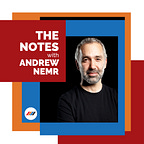A few months ago, I had the wonderful opportunity to attend an artist retreat hosted by Sanctuary Ministries. One of the session leaders was Hillary McBride. She guided us in a series of exercises based on her work in the embodiment and ecstatic dance spaces. The sessions were engaging and definitely shook things up. The group had a multitude of responses to the work Hillary invited us into. My own response caught me off guard.
I was the only dancer in the group that gathered, including Sanctuary staff, musicians, writers, poets, and designers. I found myself contending with my formation as a tap dancer – having very specific guidelines around how to move my body – and the invitation to let my body do whatever it wanted to. At least in that space, in that moment, I couldn’t seem to find the path Hillary was pointing us towards. As I shared this observation with the group, Hillary asked if more guidelines would help me. I said, “No.” I wasn’t looking for an adjustment of what she was trying to invite us into. I had, however, become super curious about the difference in approach between ecstatic dancing and dances which have form.
To be sure, there is nothing in the arts that doesn’t ultimately take a form. The handful of times I played free jazz (with Pheeroan AkLaff or Rashied Ali), or performed for DayBreaker events (the global phenomenon of early morning ecstatic dance parties) taught me that even the most unformed pursuits take form. The music I played was recognizable. The parties had a reputation. We are beings of form, after all, which means that all our expressions will take some kind of form.
When I was apprenticing to become a pastor, I had many conversations about form and freedom with my teacher. In thinking about the church gathering I would ultimately be leading, my teacher would ask me questions like these:
What should the gathering look like?
What would be the organizing activities or principles, of the gathering be?
What shape will the gathering take?
As if somehow it was up to me to decide these things.
My experience in Tap Dance Land was fundamentally different. I was invited into a craft that already had a form. It was very specific, with very specific models (people). Of course it allowed, anticipated, and encouraged individual contribution within the form. This idea was different than doing whatever you wanted. In Tap Dance Land, what I had to say – my personal voice – was found in relationship with the entire body of work that came before me. I couldn’t do whatever I wanted. I wasn’t supposed to. I was supposed to be found in Tap Dance Land. So when I came to make anything – a solo performance, a new show, even teach a class – my first question was, “What are my options?”
Over time – as my immersion pervaded my being – I became more trusting in my own natural choices. I knew what the options were. I knew the landscape of Tap Dance Land that I had explored, what my position was in that landscape – my voice – and how to reconcile the two.
However, there are many forms in the world for which individual contribution is not encouraged. Many of us may have found ourselves, even currently, immersed in such forms, which may include governments, industries, organizations, communities, families, relationships, even our own person.
These forms function on imposition – even manipulation – rather than love. When working inside a form like this we might feel pressed upon to do things a certain way. While the pressing is justified by the outcome that is hoped for, there is something about the process of imposition. The pressing upon is formative. Our behaviors feel forced to adjust. Our wills may accept or resist or grieve depending on the moment. We ultimately become different kinds of people, but in the process we miss out on the opportunity to learn how to discover, experience wonder, and co-create.
Coming from these forceful forms, ecstatic dance is an opportunity to discover what is operating inside ourselves, to shake loose (literally) from some of the forms, and to remember the kind of action we are capable of. We are capable of action that is impromptu and spontaneous. We might not be used to such action. If a moment arises that we spontaneously react we might be surprised by what comes out. Yet, to let ourselves go is not inherently an evil thing. It is a courageous act of discovery. If the line of good and evil runs through every heart, then when we let ourselves act spontaneously, we will likely see both good and evil come out. Still, whatever parts of our spirit are already formed towards goodness require the space to act spontaneously in order to engender trust and continue to grow.
The practice of expressing ourselves without censorship or filter requires a loving environment. It requires a pathway through the offenses that will come. It requires a way towards forgiveness. Forms of imposition try to control everything – to get everything right so that we don’t cause an offense to the form. This isn’t bad. But forms of imposition make getting things right a matter of force rather than formation. What if doing the good thing was just what came out of us? What would that look like?
When it came to tap dancing, Henry LeTang, a mentor of mine, was fond of saying “We do it because we love it.” It wasn’t as if a tap dancer was going to get rich or famous. So love had to be the driving force. You can often tell the artists for whom love drives their practice. They are more fully formed in the likeness of their craft. Their minds and bodies have adapted to the requirements of dancing, or painting, or sculpting, or writing. This approach of willing adaptation can be applied to life in general.
Through a process of following and apprenticeship, our entire lives can become a form that is pervaded by love. Not just the action that comes out of us, but our very being, and experience of life and reality can be pervaded by love. Love can be the whole thing. In this state, we would be able to move in and out of forms that are impositional without feeling imposed upon. The love we have received leaves no room for anything else. We would be able to feel free without requiring practices of ecstatic expression. We would be regularly acting spontaneously out of the spirit of love that is active within us. Our lives would be a continual experience of the receipt and gifting of love. Can you imagine a form like that?











